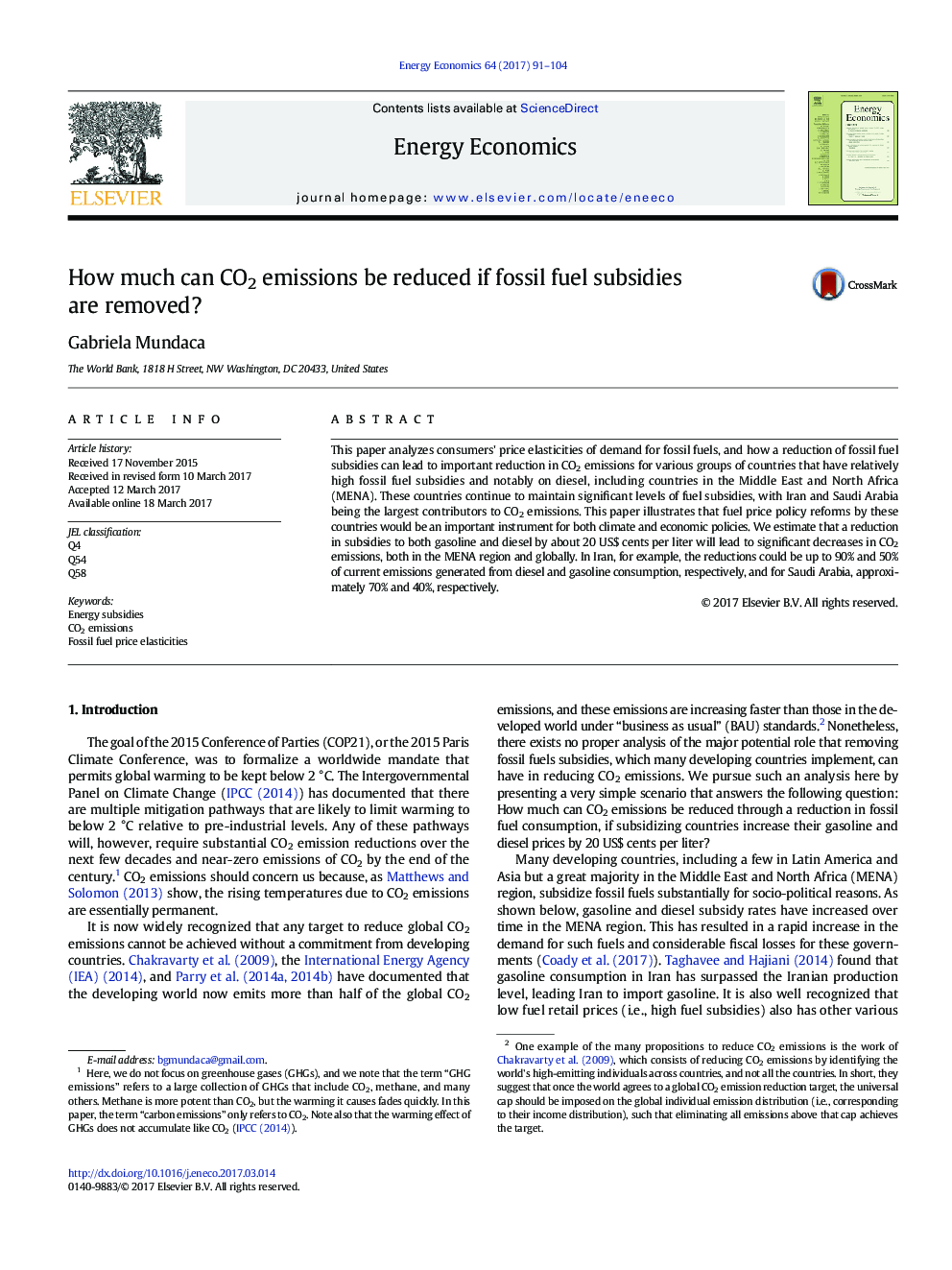| کد مقاله | کد نشریه | سال انتشار | مقاله انگلیسی | نسخه تمام متن |
|---|---|---|---|---|
| 5063697 | 1476700 | 2017 | 14 صفحه PDF | دانلود رایگان |

- Long-run price elasticities for fossil fuels are three fold the short-run ones in World Bank regions.
- The MENA countries have significance levels of fuel subsidies and the largest CO2 emitters are Iran and Saudi Arabia.
- Subsidy reductions by 20 US$ cents/liter in diesel/gasoline reduce CO2 annually by 90%/50% in Iran; 70%/40% in Saudi Arabia.
This paper analyzes consumers' price elasticities of demand for fossil fuels, and how a reduction of fossil fuel subsidies can lead to important reduction in CO2 emissions for various groups of countries that have relatively high fossil fuel subsidies and notably on diesel, including countries in the Middle East and North Africa (MENA). These countries continue to maintain significant levels of fuel subsidies, with Iran and Saudi Arabia being the largest contributors to CO2 emissions. This paper illustrates that fuel price policy reforms by these countries would be an important instrument for both climate and economic policies. We estimate that a reduction in subsidies to both gasoline and diesel by about 20 US$ cents per liter will lead to significant decreases in CO2 emissions, both in the MENA region and globally. In Iran, for example, the reductions could be up to 90% and 50% of current emissions generated from diesel and gasoline consumption, respectively, and for Saudi Arabia, approximately 70% and 40%, respectively.
Journal: Energy Economics - Volume 64, May 2017, Pages 91-104